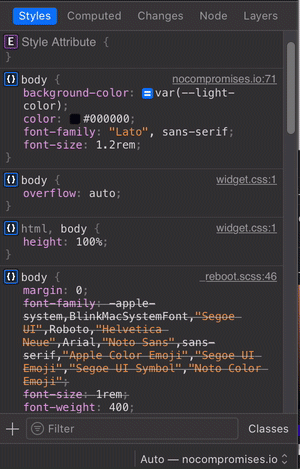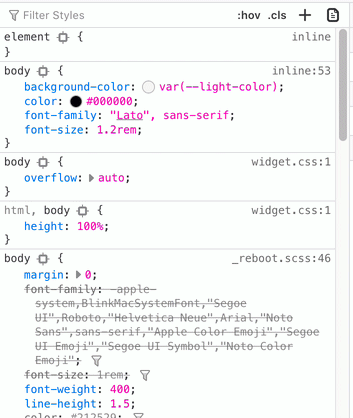How Do You Do - Unpacking A Classic Greeting
Have you ever found yourself in a moment where someone offers a greeting like “how do you do?” and you feel a little unsure about the proper way to answer? This particular collection of words, which seems simple enough, can often cause a bit of confusion, especially for those not quite familiar with its typical application. It is a phrase with a rather specific use, and knowing its true nature can help you feel more at ease in various social settings.
This discussion aims to shed some light on what “how do you do?” truly represents. We will, in a way, pull apart its meaning and then look at the best ways to respond to it. The idea is to make sure you feel more confident when this old-fashioned, yet still present, greeting comes your way. It is, you know, about feeling comfortable in your interactions.
Knowing the correct reply can really make a difference in how you present yourself, especially when you are just getting to know someone. It is, in some respects, a small piece of social etiquette that carries a good deal of weight in certain circles. So, let us get a better grasp on this phrase, shall we?
Table of Contents
- What Does "How Do You Do" Really Mean?
- When Do You Use "How Do You Do"?
- How Do You Respond to "How Do You Do"?
- Is "How Do You Do" a Question, Truly?
- The Difference - "How Do You Do" Versus "How Are You"
- Understanding "What Do You Do" - How Do You Ask About Work?
- Why Does "How Do You Do" Feel So Formal?
What Does "How Do You Do" Really Mean?
When someone says "how do you do," they are, quite simply, saying hello. It is, in essence, a way of greeting another person, especially when you are meeting them for the very first time. This phrase acts as a polite welcome, a sort of opening statement in a new conversation. It is not, you know, a literal question about your current well-being or how you are performing at something.
Think of it as a traditional way to begin an exchange with someone unfamiliar. It is a formula, you could say, that people use when they are being introduced to one another. The words themselves might suggest an inquiry about your state, but their actual use is more about acknowledging the other person's presence. It is a bit like saying "pleased to meet you" in a slightly different, more old-fashioned manner, you know, in a way.
The core of this expression, then, is a greeting. It serves as a gentle nod to the start of an interaction, particularly in settings where a certain level of politeness is expected. So, if you hear it, remember that the person is just offering a polite welcome, not seeking a detailed update on your day. It is, in short, a verbal handshake.
When Do You Use "How Do You Do"?
This particular greeting finds its best use in somewhat formal situations, especially when you are making the acquaintance of someone new. Imagine, for instance, a dinner gathering where people are dressed up, and the atmosphere feels a little more structured. That is, you know, a prime setting for this phrase. It is a way of acknowledging someone's presence with a touch of traditional courtesy.
It is, typically, a phrase spoken when you are introduced to a person you have not met before. The moment of introduction is when this expression truly shines. It sets a tone of respect and proper conduct right from the start. So, if you find yourself at an event where first impressions carry a good deal of weight, this phrase might very well be part of the initial exchange.
Consider it a tool for opening a conversation in a refined manner. It is not something you would usually say to a close friend or a family member, for instance. It is reserved, more or less, for those moments when you are extending a polite welcome to a new face in a somewhat structured environment. It is, basically, a formal hello for a first meeting.
How Do You Respond to "How Do You Do"?
The most common and generally accepted way to respond to "how do you do" is, surprisingly, to say "how do you do" right back. This might seem a little strange, as it feels like you are just repeating the question, but it is, you know, the expected social custom. It is not meant to be a literal answer to a question about your state of being.
Some people, however, might feel a bit put off if you respond with the exact same phrase. The original text suggests that some individuals might even feel a little insulted if their "how do you do" is met with another "how do you do." This feeling comes from the thought that the phrase might be a genuine inquiry, even though its traditional use is not. So, you know, it is worth considering the context.
Another perfectly good reply, which avoids any potential misunderstanding, is to simply say "I am doing well, thank you." This acknowledges the greeting and offers a polite, yet simple, response. Or, you could say something like, "You are doing well, thank you." The key is to offer a polite acknowledgement rather than a detailed personal update. It is, after all, a greeting, not an actual health check.
Is "How Do You Do" a Question, Truly?
Despite its appearance as an inquiry, "how do you do" is, in fact, not a question in the way we usually think of questions. It is not asking for information about your current state or how you are feeling. It is, you know, a fixed phrase that operates as a greeting. The structure of the words might suggest an interrogation, but its function is purely to say hello.
Many people find this aspect a bit confusing because the words "how," "do," and "you" naturally lead one to believe an answer is required. However, in this specific instance, the phrase acts more like an exclamation or a statement of polite recognition. It is, basically, a conventional formula for introductions, rather than a genuine request for an update on your well-being.
So, when you hear it, resist the urge to explain how you are doing, what you have been up to, or any other personal details. The person speaking is not seeking that kind of data. They are simply initiating a polite interaction. It is, in some respects, a social signal, not an actual query. This is why, you know, a simple "how do you do" back, or a polite "I am doing well, thank you," is enough.
The Difference - "How Do You Do" Versus "How Are You"
It is important to understand that "how do you do" is quite different from "how are you." While both might seem to touch upon someone's state, their uses and expected replies are distinct. "How are you" is, you know, a genuine question about a person's current feelings or general condition. When someone asks "how are you," they are truly looking for an answer about your well-being.
For "how are you," common replies include "I am doing well, thank you," or "I am good, how about you?" You might even say "I am great, thanks for asking." These answers provide a brief update on your state, which is what the question intends to gather. It is a more casual and direct inquiry, often used with people you know or are getting to know on a more personal level.
In contrast, "how do you do" remains a formal greeting, a simple "hello." It does not seek information about your health or mood. The distinction is subtle but important for polite social interaction. So, you know, remember that one is a true question seeking an update, and the other is a polite opening statement. It is, in a way, about recognizing the intent behind the words.
Understanding "What Do You Do" - How Do You Ask About Work?
Separate from "how do you do," there is the question "what do you do." This phrase has a completely different purpose. When someone asks "what do you do," they are inquiring about your profession or your way of earning a living. It is, you know, a polite way to learn about a person's work life.
This question is very common when you are meeting someone for the first time, or when you are getting to know new people. It is a way to understand a bit about their daily activities and perhaps find common ground for conversation. It is also suitable if you have not seen someone for a long time and want to catch up on their current situation. So, it is a direct question about someone's occupation.
Unlike "how do you do," "what do you do" definitely requires a specific answer about your job or career. You might say, "I am a writer," or "I work in technology," for instance. This question is, basically, a straightforward request for information about a person's employment. It is, in essence, a way to understand someone's professional role in the wider world.
Why Does "How Do You Do" Feel So Formal?
The feeling of formality surrounding "how do you do" comes from its history and its typical usage. This phrase has been around for a good while, and it belongs to a time when social interactions often had more rigid rules. It is, you know, a relic, in a way, of an older manner of speaking, where politeness and proper form were very much emphasized.
Imagine, for instance, a very proper dinner gathering, complete with fine dishware and shining cutlery. That kind of setting is where "how do you do" truly fits. It suggests a certain level of decorum and respect that might not be present in more casual exchanges. It is, basically, a phrase that carries the weight of tradition and established social norms.
In modern times, our everyday greetings tend to be much more relaxed, like "hello" or "good morning." These simpler phrases are generally enough for most situations. If you do not intend to use a very formal greeting, then these more common expressions will work just fine. So, you know, the formality of "how do you do" is tied to its traditional roots and its use in more structured social settings.

Seeing Calculated Values of CSS Variables in Browsers | Aaron Saray

Seeing Calculated Values of CSS Variables in Browsers | Aaron Saray

Steps to Register for the IELTS at British Council | Nurseonlineph